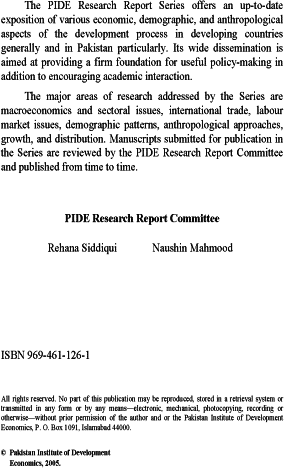
Pakistan Institute of Development Economics
- Home
Our Portals
MenuMenuMenuMenuMenuMenuMenu - ResearchMenuMenuMenuMenuMenuMenuMenu
- Discourse
- The PDR
- Our Researchers
- Academics
- Degree Verification
- Thesis Portal
- Our Portals
The Contribution of Worker’s Remittances to Economic Growth in Pakistan
The role of workers’ remittances in economic development of recipient countries is considered to be an important area of research. In particular, sound research in this area is important for policy-makers in order to formulate wise policies to channel these flows into productive investment. Remittances have become an important source of foreign exchange earnings, predominantly from developed countries to developing countries. The availability of foreign exchange through remittances has not only helped the recipient countries in achieving a reasonably high economic growth by reducing the current account deficit, it has also reduced their external borrowing as well as external debt burden. There is, however, also an alternative view that remittances may have a negative impact on output in recipient economies. It is argued that significant flows of workers’ remittances reduce labour force participation and work efforts, which lowers output. For example, Chami, Fullenkamp and Jahjah (2003), using panel data of 113 countries, found negative impact of remittances on economic growth. They argued that remittances are compensatory flows and countercyclical in nature and there are also significant obstacles to transforming remittances into productive investment.



